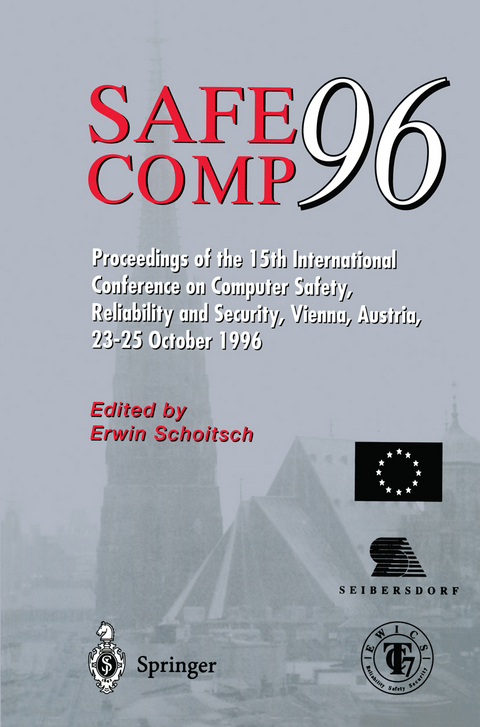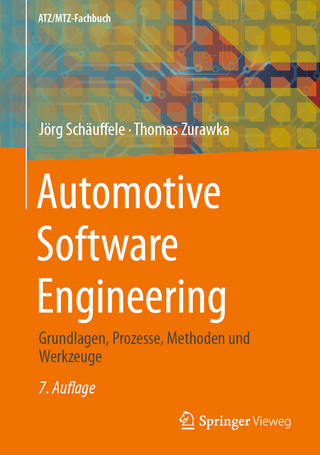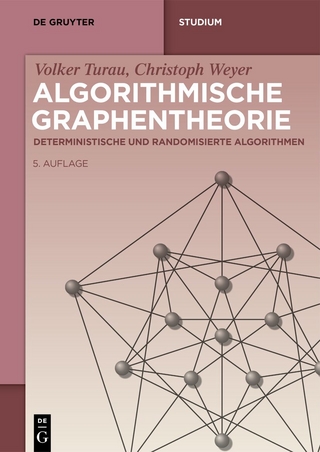
Safe Comp 96
Springer Berlin (Verlag)
978-3-540-76070-2 (ISBN)
Invited Paper.- Systematic Design of Fault-Tolerant Computers.- Session 1: Formal Methods and Models.- Formal Verification of Safety Requirements on Complex Systems.- Formal Specification of Safety-Critical Software with Z and Real-Time CSP.- Safety Analysis Based on Object-oriented Modelling of Critical Systems.- A Processor Architecture Designed to Faciliate the Safety Certification of Hard Real Time Systems.- Session 2: Testing, V&V.- Formal Verification as a Design Tool - The Transponder Lock Example.- Acceptance Criteria for Critical Software Based on Testability Estimates and Test Results.- Developing Dependable Software Using Prototyping and Test-Diversity.- Software Reliability Models and Test Coverage.- Defining the Unit Testing Level of Synchronous Data Flow Programs.- Tolerant Software Interfaces: Can COTS-based Systems be Trusted Without Them?.- Modeling Software Dependability Growth under Input Partition Testing.- Round Table.- An Holistic Approach to Dependability?.- Invited Paper.- Software-based critical systems.- Session 3: Reliability and Safety Assessment.- Systematic Development of Markov Models for the 1oo2D Programmable Electronic System Architecture - Analysis of Safety and Availability.- Failure Risk Estimation via Markov Software Usage Models.- Design Methodologies and Systems Safety.- Session 4: Industrial Applications and Experience.- Reliability and Vulnerability Assessment as Decision Support during Purchase and Design of Complex, Technical Systems.- Safety Analysis and Evaluation of an Air Traffic Control Computing System.- Creating Markov Models for Applications in the Process Industry.- Session 5: Railway Applications and Experience.- Specifying Railway Interlocking Requirements for Practical Use.- SIGAV, the Italian High Speed Railway Integrated Management System: Safety and Reliability Overview.- A Safe, Reliable Control and Supervisory System for Railway Networks.- Assessment and Certification Requirements in the European Railway Industry.- Session 6: Management and Development.- Failure Classification Schemes for Analysing System Dependability.- Session 7: Human Factors.- Human Factors in High Integrity Software Development: A Field Study.- Human Factors in Safety-Critical Systems: An underestimated contribution?.- PERE: Evaluation and Improvement of Dependable Processes.- Safety and Technology Transfer.- Invited Paper.- Safety Case for the NERC Air Traffic Control System.- Session 8: The Safety Case Legal Aspects.- Integrity Levels and their Application to Road Transport Systems.- Legal Sufficiency of Testing Processes.- Session 9: Security.- Application of Formal Methods in the Scope of IT-Security.- Reliability and Security in Communication Software: PBX Systems and CSTA Applications.- Byzantine Agreement with Limited Authentication.- Implementation of a Security Policy in Distributed Safety Related I&C Systems - A Case Study.- Author Index.
| Erscheint lt. Verlag | 22.10.1996 |
|---|---|
| Mitarbeit |
Sonstige Mitarbeit: Austrian Research Centre Seibersdorf |
| Zusatzinfo | XVII, 425 p. 28 illus. |
| Verlagsort | London |
| Sprache | englisch |
| Maße | 155 x 235 mm |
| Gewicht | 666 g |
| Themenwelt | Mathematik / Informatik ► Informatik ► Software Entwicklung |
| Mathematik / Informatik ► Informatik ► Theorie / Studium | |
| Schlagworte | authentication • classification • Computer • Computersicherheit • Design • Formal Method • formal specification • Formal Verification • Interface • Modeling • Reliability • security • structured analysis • Testing • Trust • verification |
| ISBN-10 | 3-540-76070-9 / 3540760709 |
| ISBN-13 | 978-3-540-76070-2 / 9783540760702 |
| Zustand | Neuware |
| Haben Sie eine Frage zum Produkt? |
aus dem Bereich


